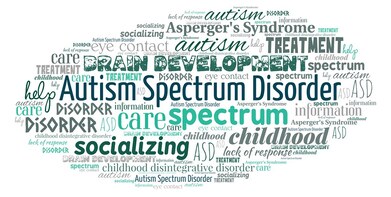|
At work, our Engineering Inclusion, Diversity, & Equity Advisory Council asked me to assist with a coffee talk on Autism Spectrum Disorder. I learned so much that I thought I would share it with you!
Autism spectrum disorder (ASD) is a developmental disability that can cause significant social, communication, and behavioral challenges. There is often nothing about how people with ASD look that sets them apart from other people, but people with ASD may communicate, interact, behave, and learn differently. The learning, thinking, and problem-solving abilities of people with ASD can range from gifted to severely challenged. Some people with ASD need a lot of help in their daily lives; others need less. A diagnosis of ASD now includes several conditions that used to be diagnosed separately: autistic disorder, pervasive developmental disorder not otherwise specified, and Asperger syndrome. These conditions are now all called autism spectrum disorder. The autism spectrum is estimated to affect about 62.2 million globally as of 2015 Causes are unknown - the research suggests that genes can act together with influences from the environment to affect a child's development in a way that brings about ASD. People with ASD often have problems with social, emotional, and communication skills. They might repeat certain behaviors and might not want change in their daily activities. Many people with ASD also have different ways of learning, paying attention, or reacting to things. By the numbers: BY THE NUMBERS (Source: National Today) 1 in 59 – the number of children diagnosed with an autism spectrum disorder in 2018. 1 in 34 – the number of boys diagnosed with ASD in 2016, according to data collected by the CDC. 1 in 145 – the number of girls diagnosed with ASD in 2016, according to data collected by the CDC. 4 – the age after which most children are diagnosed with ASD. 31% – the percentage of children with an intellectual disability due to ASD. 2-18% – the percentage of chances of parents having a second child with ASD after the first one. 36-95% – the percentage of chances that if one child has autism in a pair of twins, the other will be affected as well. ½ – of the total number of children with autism typically wander or 'bolt' from a safe setting if something catches their interest. 28% – the percentage of children with ASD who have self-harm behavior. ⅔ – of the total number of children with autism face severe bullying. Common signs that could hint at ASD:
Specialists who can do a more in-depth evaluation and make a diagnosis include:
|
Categories
All
Archives
June 2023
|


 RSS Feed
RSS Feed